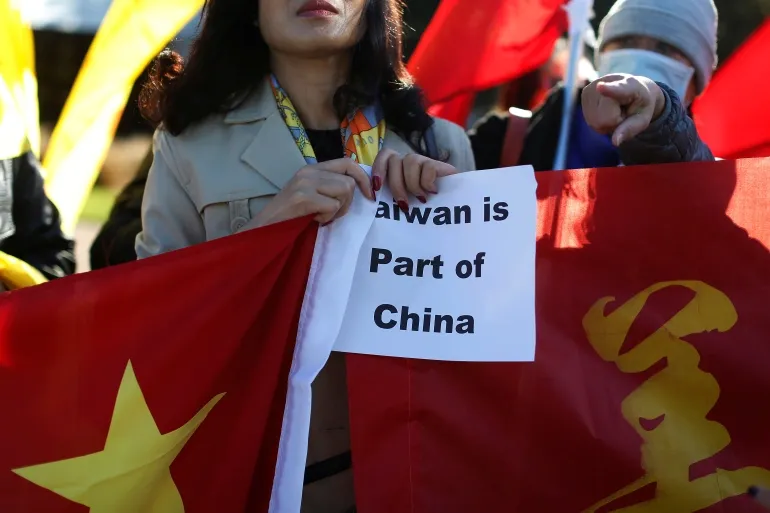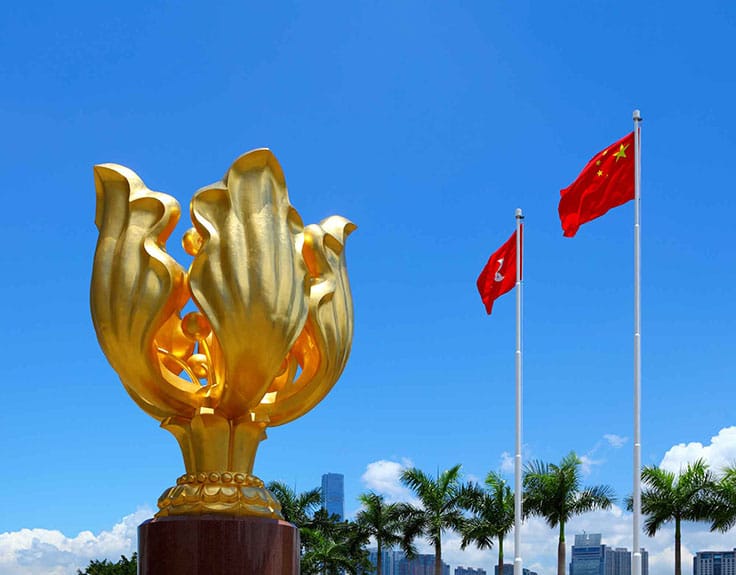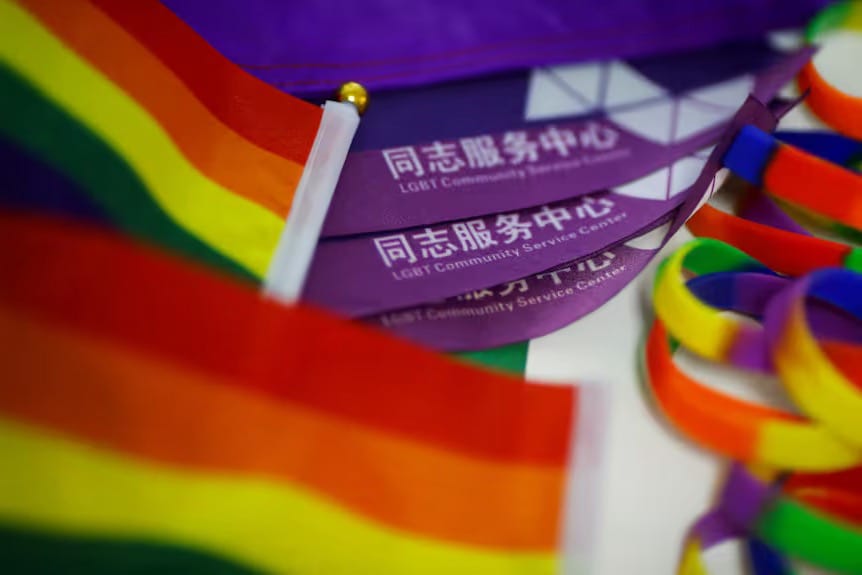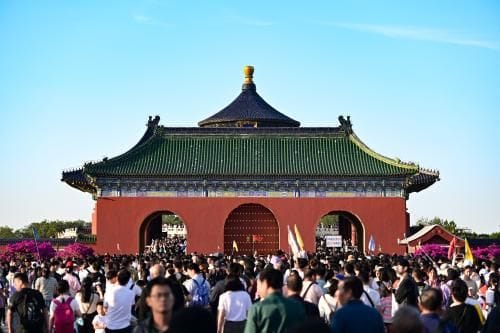On this page
Internet Usage

As a foreign visitor in China, you may find that some apps are inaccessible without using a VPN. For more details, please refer to our Internet Guide.
Is Using a VPN Legal?
For foreign tourists, using a VPN to access the international internet is not legally risky. However, Chinese citizens who do not follow regulations regarding VPN usage may face fines. For more information, please refer to our Internet Guide.
Be Mindful of Your Social Media Presence During Your Stay in China
While foreign visitors can use both international and Chinese apps, it’s best to avoid posting on social media about controversial topics, such as:
- Promoting violence or hate speech, which is considered inappropriate worldwide
- Spreading ethnic, racial, or nationalistic hatred
- Criticizing local religious or ethnic policies or questioning the legitimacy of the ruling party These topics can be sensitive and might attract unwanted attention.
Social Conduct and Misconceptions
Is Jaywalking Illegal in China? What is the Social Credit System?

There are rumors online about a "social credit system" in China, suggesting that every citizen has a score that is constantly monitored and can be lowered for bad behavior, leading to severe penalties.
As someone who has lived in China for 30 years, I can assure you that this is a complete myth. There is no such thing as a universal "social credit score." The confusion arises from a mix of traffic management systems, banking credit scores, and measures against those who default on debts. These have been misrepresented by some Western media to create a dystopian narrative.
Jaywalking is illegal in China, and it's best to avoid doing it while traveling. However, you may occasionally see locals breaking this rule. But rest assured, jaywalking does not lead to imprisonment or any extreme consequences.
Religious Practices

China is a multi-ethnic country with diverse religious practices. Although Muslim communities are more concentrated in the northwest, Muslims can be found throughout China. Halal restaurants are marked with specific signs. In these establishments, it’s important to respect Islamic practices by refraining from actions such as smoking or eating pork.
Politically Sensitive Issues
Sensitive Ethnic Issues
- Xinjiang Ethnic Issues
In regions like Xinjiang, Xi'an, Ningxia, Yinchuan, and Tibet, large Muslim communities live. Some extremist groups have been identified as terrorist organizations by the Chinese government and the international community. Although Xinjiang is now stable and secure, it’s best to avoid discussing ethnic issues with locals unless you are certain of their political views.
- Tibetan Ethnic Issues
In Tibet and western Sichuan, there are many Tibetan communities. While many Tibetans have integrated into mainstream Chinese culture, most in Tibet still maintain their traditional customs and religious practices. It’s advisable to avoid topics like the Dalai Lama when interacting with locals to prevent discomfort or conflict.
Taiwan Issue

The Taiwan issue is one of East Asia’s most sensitive political topics. Both the People's Republic of China (PRC) and the Republic of China (ROC) claim sovereignty over each other's territory. The historical background is complex, and if you're interested, you can research the Chinese Civil War and the Taiwan issue. As a foreign tourist, it’s best to avoid discussing this topic with locals unless you are certain of their stance, as it can be seen as offensive.
China-Hong Kong Tensions

Hong Kong was a British colony from 1840 to 1997, after which sovereignty was transferred back to the PRC. Despite being under Chinese sovereignty, Hong Kong has a separate governance system and legal framework. Due to differences in historical and social contexts, there have been significant tensions between Hong Kong and mainland China, most notably the protests in 2019. If you are traveling in southern China or Hong Kong, be aware of the sensitivity surrounding this topic. Different people may have opposing political views, so exercise caution when discussing it.
Regional Prejudice Issues
Even within mainland China, there are numerous regional discrimination issues, mostly arising from online debates and biases. As a foreigner, it’s best to avoid engaging in these discussions. Here are some examples of potentially offensive topics:
- Anti-Henan Sentiment: Since the 1990s, there has been a growing stigma against people from Henan, which is a form of internal ethnic and regional discrimination that should be condemned and avoided.
- Beijing vs. Shanghai “Rivalry”: Praising Shanghai in front of Beijing locals, or vice versa, is considered impolite. These cities are the political and economic centers of China, respectively, and have a rivalry similar to that of Tokyo and Osaka in Japan.
- Chengdu vs. Chongqing “Rivalry”: Similarly, complimenting Chongqing in front of Chengdu locals, or vice versa, can be seen as rude. Chongqing was once part of Sichuan Province, with Chengdu as the provincial capital. Since 1997, Chongqing has been a municipality directly under the central government. These two cities are the largest in southwest China and share a common culture but have different characteristics and a competitive relationship.

LGBTQ
The number of LGBTQ individuals is steadily increasing. However, LGBTQ is not considered mainstream in mainland China and same-sex marriage has not yet been legalized in mainland China. People's ccceptance towards it varies across different cities, with first-tier cities like Chengdu, Chongqing, and Shanghai generally being more accepting. It also varies across ages. Younger people tend to be more accepting, but it might be a cultural shock for older generations. But it is glad to see that new generation of young people is starting to acknowledge their sexual orientation, whether they are heterosexual or homosexual.

If you identify as LGBTQ, rest assured that China is a safe place to travel. If you don’t, please show the same respect and acceptance toward this community during your visit.❤️
Prohibited Activities

Sexual Service
Sexual service is ILLEGAL in China. Although it does not fall under criminal law, it violates public security regulations and may result in deportation, affecting future entry into China. Like in many other countries, prostitution exists in a gray area, so it’s best for foreigners to avoid engaging in such activities unless they can guarantee their safety.
Gambling
Participating in gambling games with stakes exceeding 30 RMB per bet or 3000 RMB in total can be considered illegaland may lead to criminal charges. Tourists should be cautious and limit gambling to low-stakes, entertainment-only activities.
If you’re interested in gambling, Macau in southern China is recommended. Although under Chinese sovereignty, Macau operates under a separate legal system where gambling is legal and a major industry, earning it the nickname "the Las Vegas of the East."
Strict Anti-Drug Policies
China has a zero-tolerance policy toward drugs. Avoid any involvement with drugs, including marijuana, as drug use is treated as a serious criminal offense in China.
Do Chinese People Eat Cats and Dogs?

There are numerous rumors online about Chinese people eating cat and dog meat. These are mostly fabricated myths. You won’t find any restaurants selling dog or cat meat in Chinese cities.
However, in some rural or ethnic minority areas, such as Yulin in Guangxi, eating dog meat has been a traditional practice. Yulin, a city of 3 million people, used to hold an annual dog meat festival in June. However, due to protests from animal rights activists and concerns over food safety, the festival has been canceled since 2013, and dog meat sales have been banned by local authorities. Although there are no laws specifically prohibiting the consumption of dog meat, it’s a rare practice.
The Chinese are known for their love of dogs, with native breeds like the Chinese rural dog being a significant part of traditional farming culture. China’s pet market is also one of the fastest-growing in the world.
Avoid Traveling During China’s National Holidays to Get the Best Experience

China has an abundant festival culture. Major holidays include the following:
- New Year's Day: January 1st, with a 3-day holiday. Chinese people, along with people around the world, celebrate the New Year.
- Chinese Spring Festival: Celebrated on the first day of the lunar calendar. Specific dates vary, so check the Chinese lunar calendar or Google in advance.
- Tomb-sweeping Festival: A 3-day holiday in April. Dates are based on the Chinese lunar calendar. It is observed by Chinese and East Asian communities, such as Koreans. This is a time for honoring ancestors and enjoying the outdoors.
- Labor Day: A 5-day holiday from May 1st to 5th each year. It is the longest holiday in the first half of the year.
- Dragon Boat Festival: A 3-day holiday in June, observed by Chinese, Japanese, and Koreans. This festival involves dragon boat races and eating zongzi (rice dumplings). Dates are also based on the lunar calendar.
- Mid-Autumn Festival: A 3-day holiday in mid-September, based on the Chinese lunar calendar. This festival signifies family reunions, eating mooncakes, and admiring the full moon.
- National Day: A 7-day holiday from October 1st to 7th each year, celebrating the founding of the People's Republic of China.
After working for a long time, Chinese people will travel to other cities to have a rest during holidays. Thus, at that time, there will be mountains of people in some hot tourist destinations. Also, prices, particularly for hotel accommodations, will rise significantly.



